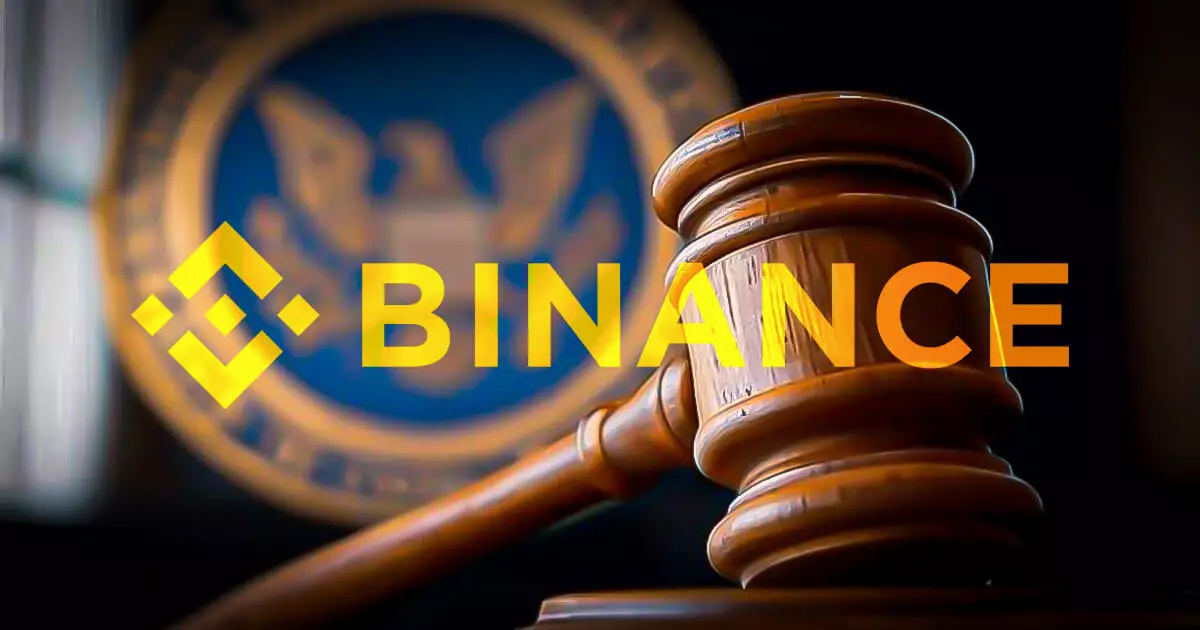In a significant turn of events, the U.S. Securities and Exchange Commission (SEC) and cryptocurrency exchange Binance have requested a 60-day halt in their ongoing litigation. This decision, conveyed in a filing on February 10, stems from the SEC’s establishment of a new crypto task force under the leadership of Acting Chair Mark Uyeda. Both entities believe that the task force’s insights and initiatives could be pivotal in shaping the resolution of the case, which has attracted considerable attention since its inception in 2023. The request for a suspension highlights a strategic pivot aimed at judicial efficiency, recognizing the potential benefits of a collaborative approach.
The temporary pause allows both the SEC and Binance to reassess their positions and consider the implications of the SEC’s new task force on their future dealings. It is particularly noteworthy that following the suspension, the parties will prepare a joint report to evaluate the need for any further extensions. The rationale for this cooperative endeavor is clear: a successful and early resolution could conserve resources that might otherwise be allocated to prolonged legal discovery and litigation.
The SEC initially brought forth its allegations against Binance, claiming violations of U.S. securities laws related to the trading of various digital assets, including prominent tokens like Solana, Cardano, and Algorand. The crux of the SEC’s argument rests on the assertion that these cryptocurrencies qualify as securities under the Howey Test—a legal benchmark for identifying investments subject to federal regulations. As the case evolved, the SEC sought to amend its complaint in July 2024, prompting Binance to file a motion to dismiss, indicative of its firm stance and strategy to counter regulatory pressures.
The evolving nature of the lawsuit encapsulates broader trends in the regulatory landscape, particularly reflecting a shift in the SEC’s approach toward cryptocurrency governance under the new administration. With the creation of the crypto task force spearheaded by Commissioner Hester Peirce, a known proponent of clarity in crypto regulations, there is an emerging consensus that the regulatory framework surrounding digital assets requires elaboration and modernization.
The SEC’s recent moves, including the downsizing of its dedicated crypto enforcement unit, signal a potential re-evaluation of how the agency interacts with digital asset entities. Once perceived as a stringent enforcer, the SEC is leaning towards a more collaborative stance, which may cultivate an environment conducive to innovation rather than stifling it. Hester Peirce has been vocal about the necessity for clear guidelines, suggesting that previous enforcement tactics have created a fog of uncertainty that hampers the growth of the cryptocurrency industry.
The current developments indicate that the SEC is recalibrating its regulatory framework to better accommodate an industry characterized by rapid advancements and evolving technologies. As both Binance and the SEC brace for the next steps in their legal journey, the focus now shifts to how these changes will ultimately shape the future of crypto regulation in the United States. The lasting impacts of this shift may influence not only the outcome of the lawsuit but also the broader regulatory environment that governs digital asset trading and innovation.
















Leave a Reply